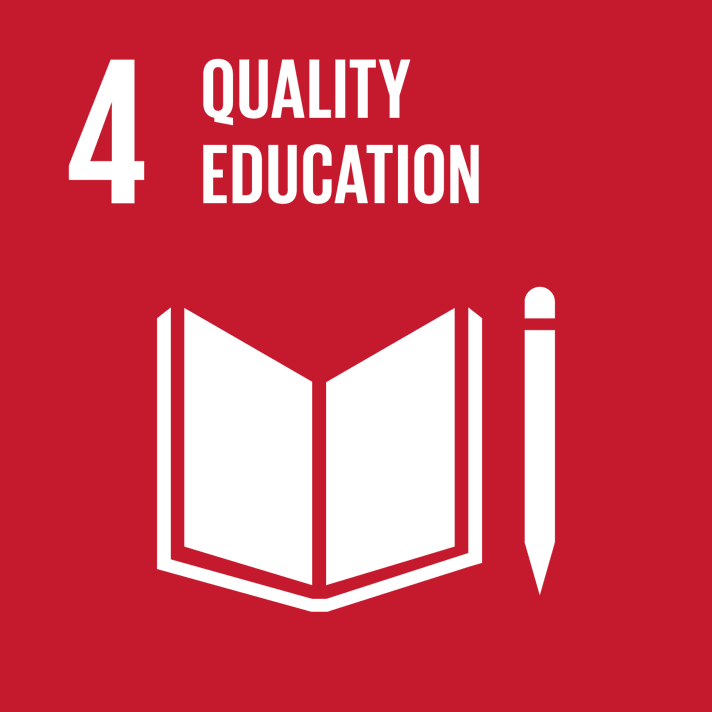Goal 4: Quality education
Published
Goal 4 is to ensure inclusive and equitable quality education and promote lifelong learning opportunities for all.

Education is a fundamental human right. Even so, it is estimated that 250 million children still cannot read or write when they begin grade four. Some 774 million people around the world are illiterate, two thirds of whom are women. Research shows that inclusive quality education for all is one of the most important cornerstones of prosperity, health and gender equality in every society. This applies particularly to investments in education for girls, where the effects are evident when it comes to promoting inclusive economic development and reduced poverty. Education plays an important role in the achievement of several goals of the 2030 Agenda.
Education systems must meet people's needs throughout their lives – from access to preschool and primary education to all young people being given the opportunity to go on to upper secondary, vocational and higher education. The large number of illiterate men and women reflects the vital need for adult education. All gender-based disparities in access to education must be eliminated and everyone, including people with disabilities, must be given equal access to all levels of education and the opportunity for lifelong learning.
The 2030 Agenda clearly includes the qualitative content of education, including access to qualified teachers. Educational issues must be viewed based on the need for lifelong knowledge acquisition, and in particular when linked to the potential of participating in working and community life. All education must promote values, knowledge and skills that contribute to sustainable development.
Targets
4.1 By 2030, ensure that all girls and boys complete free, equitable and quality primary and secondary education leading to relevant and effective learning outcomes
4.2 By 2030, ensure that all girls and boys have access to quality early childhood development, care and pre-primary education so that they are ready for primary education
4.3 By 2030, ensure equal access for all women and men to affordable and quality technical, vocational and tertiary education, including university
4.4 By 2030, substantially increase the number of youth and adults who have relevant skills, including technical and vocational skills, for employment, decent jobs and entrepreneurship
4.5 By 2030, eliminate gender disparities in education and ensure equal access to all levels of education and vocational training for the vulnerable, including persons with disabilities, indigenous peoples and children in vulnerable situations
4.6 By 2030, ensure that all youth and a substantial proportion of adults, both men and women, achieve literacy and numeracy
4.7 By 2030, ensure that all learners acquire the knowledge and skills needed to promote sustainable development, including, among others, through education for sustainable development and sustainable lifestyles, human rights, gender equality, promotion of a culture of peace and non-violence, global citizenship and appreciation of cultural diversity and of culture's contribution to sustainable development
4.a Build and upgrade education facilities that are child, disability and gender sensitive and provide safe, non-violent, inclusive and effective learning environments for all
4.b By 2020, substantially expand globally the number of scholarships available to developing countries, in particular least developed countries, small island developing States and African countries, for enrolment in higher education, including vocational training and information and communications technology, technical, engineering and scientific programmes, in developed countries and other developing countries
4.c By 2030, substantially increase the supply of qualified teachers, including through international cooperation for teacher training in developing countries, especially least developed countries and small island developing States

 X
X